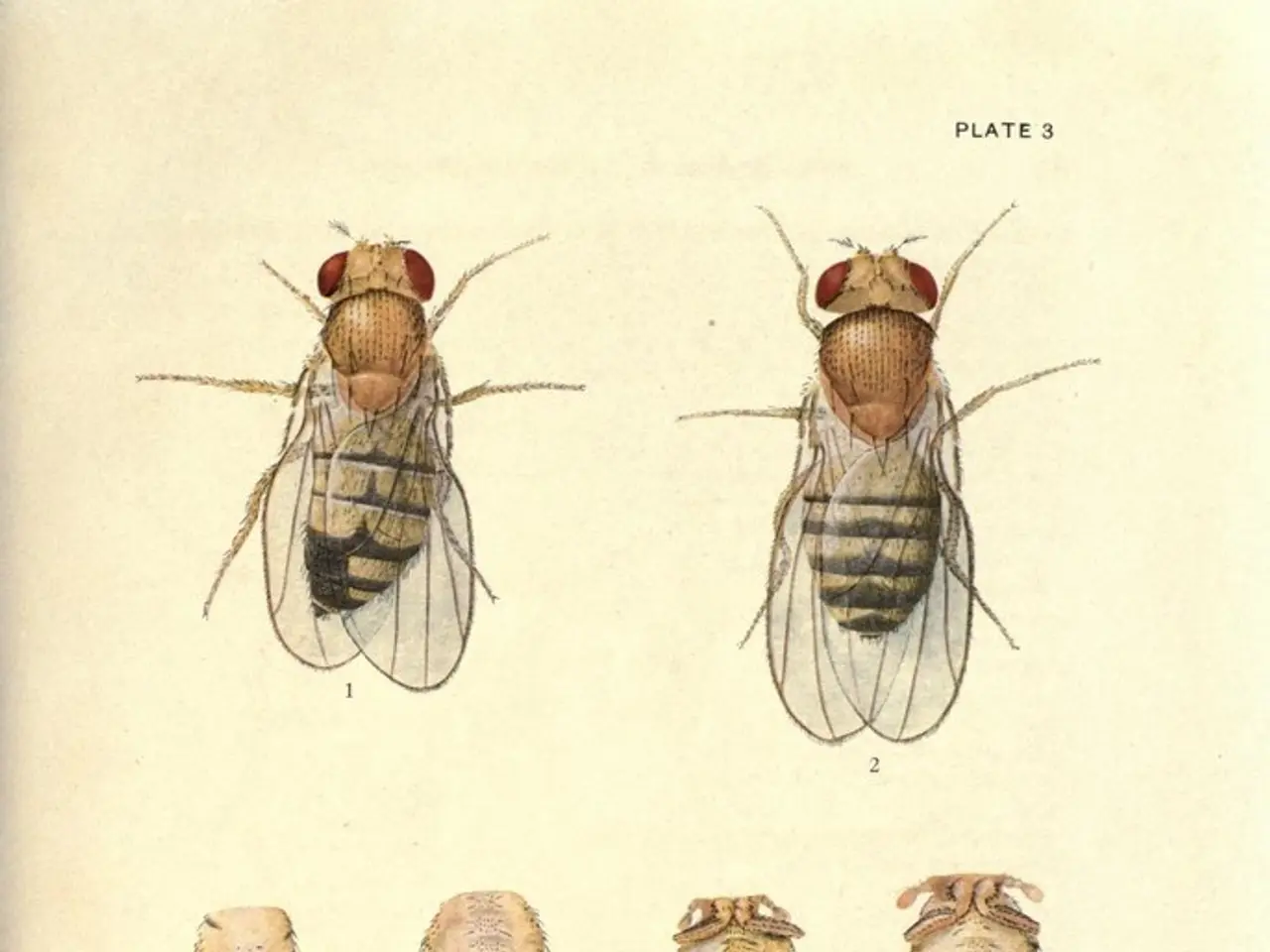Do invertebrates possess neural centers?
For many decades, it was widely believed that insects, small creatures that crawl, creep, or fly, lacked the cognitive capabilities of more complex organisms, with their brains being compared to a grain of rice. However, recent scientific research has challenged this notion, suggesting that insects, including bumblebees, possess complex cognitive abilities that go beyond simple reflexes.
One of the key researchers in this field is Lars Chittka, a behavioral biologist. In his groundbreaking work, published in the journal "PLOS Biology" in 2016, Chittka demonstrated that bumblebees can navigate complex environments, recognize patterns, solve problems, and even learn new behaviors. These behaviors imply a level of cognitive processing rather than mere reflex action.
The bumblebee's brain, while small, is composed of a central nervous system made up of ganglia. The central nervous system is located in the subesophageal ganglion, and the mushroom body, a structure found in the central brain, functions as a center for memory formation and decision-making.
One of the most intriguing findings from Chittka's research is that bumblebees can recognize the purpose of another's actions and plan their own actions accordingly, suggesting an ability to anticipate the consequences of their actions. This behavior, previously only attributed to species with complex brains, is a clear indication of the bumblebee's cognitive abilities.
Furthermore, bumblebees have been found to be capable of learning a new behavior and passing on this knowledge to others. This social learning, a form of rudimentary communication, is another example of the bumblebee's complex cognitive capacities.
While the question of insect consciousness remains open, many scientists argue that insects exhibit a form of "basic awareness" or subjective experience at least at a minimal level. Whether this amounts to "consciousness" is debated, as consciousness is challenging to define and measure in non-human species.
Lars Chittka himself argues that such behavior indicates that insects may also have consciousness. In his book "The Mind of a Bee," he discusses the possibility of insect consciousness in detail.
The bumblebee's complex behavior is not just a spectacle to marvel at, but it also provides valuable insights into the workings of the brain and the nature of intelligence. Despite their comparatively small brains, insects can demonstrate complex behavioral patterns that challenge our understanding of what it means to be intelligent.
For those interested in witnessing the bumblebee's remarkable learning abilities firsthand, Chittka's team's bumblebee experiment is available on YouTube. The experiment shows that bumblebees can apparently learn a new behavior, providing a fascinating glimpse into the cognitive world of these tiny, yet intelligent, creatures.
Science has revealed that bumblebees, despite their tiny brains, possess complex cognitive abilities, such as navigation, pattern recognition, problem-solving, and learning, challenging the notion that only more complex organisms can exhibit such abilities. These behaviors are facilitated by the bumblebee's central nervous system, located in the subesophageal ganglion and mushroom body, structures known for memory formation and decision-making. Furthermore, bumblebees can recognize the purpose of another's actions and plan accordingly, a behavior previously attributed only to species with complex brains. This social learning, a form of rudimentary communication, is another example of the bumblebee's complex cognitive capacities. In his book, "The Mind of a Bee," professor Lars Chittka argues that this behavior hints at the possibility of insect consciousness. The bumblebee's complex behavior offers valuable insights into the brain and intelligence, demonstrating that even with comparatively small brains, insects can challenge our understanding of intelligence. For those eager to witness the bumblebee's learning abilities, Chittka's team's experiment is available on YouTube.




